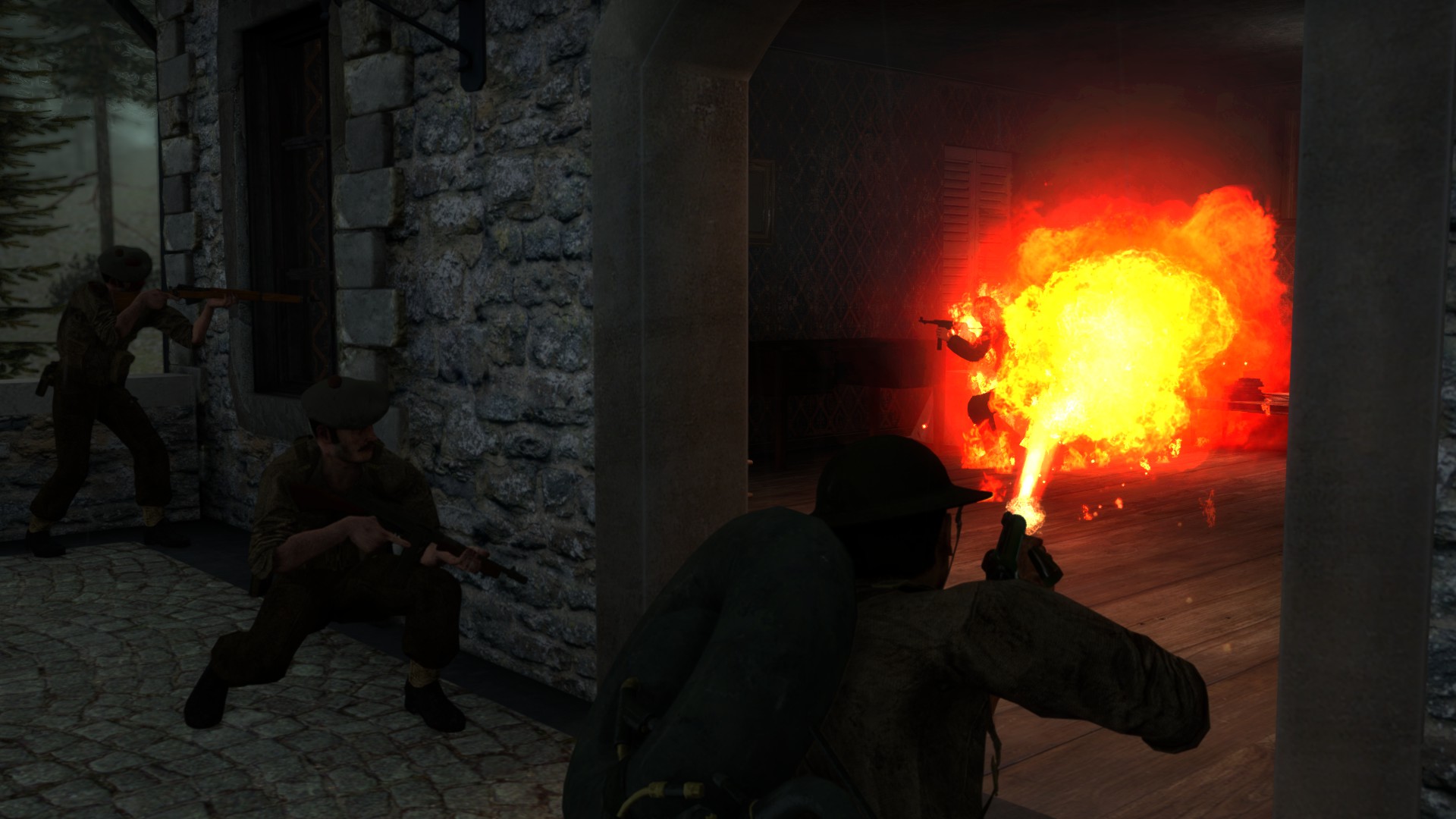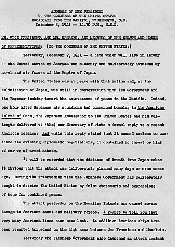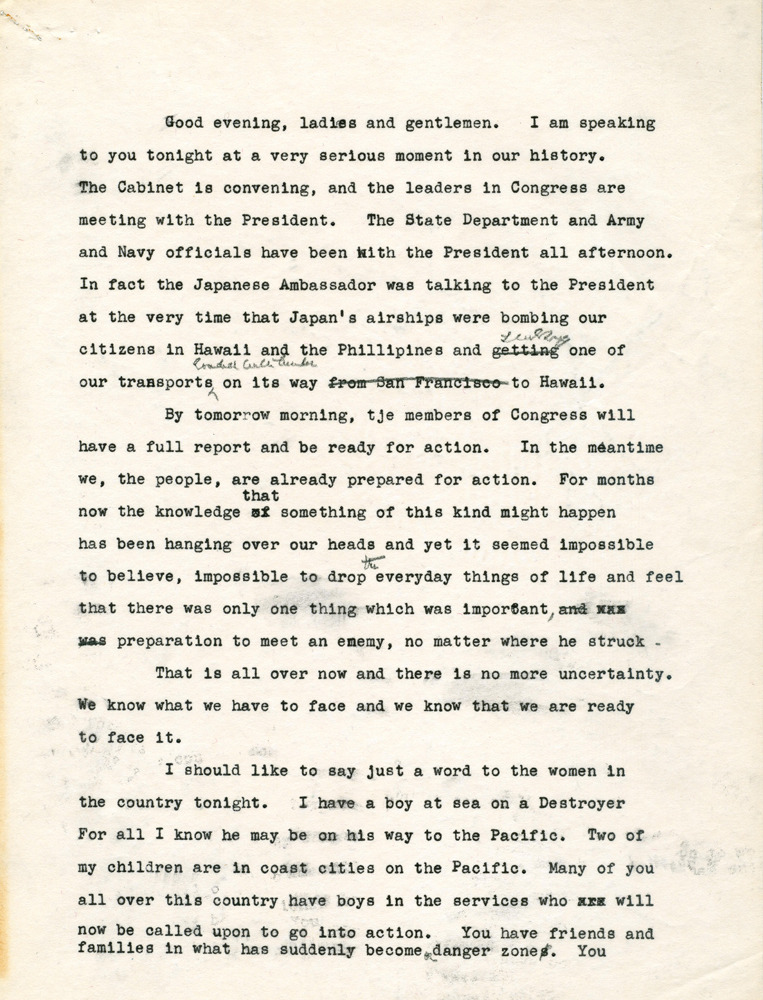

After the meeting, Roosevelt went to bed.
Roosevelt day of infamy speech free#
That evening she delivered a scheduled weekly radio broadcast in which she told listeners that although the United States had been thrust reluctantly into the war she was confident that “whatever is asked of we shall accomplish it we are the free and unconquerable people of the U.S.A.”) Late that night, Roosevelt updated his cabinet and Congressional members on the situation: “this is probably the most serious crisis any Cabinet has confronted since the Civil War.” One cabinet member later noted that the president, a former Navy man, was visibly distraught while recounting what he had been told of the strafing of sailors and the destruction of most of the Pacific fleet. (Eleanor actually addressed the nation on the subject of war before her husband.

He reminded his listeners in Congress and across the nation that the United States at peace when it was “suddenly and deliberately attacked.” Later, he asks Congress to declare that since the attack, a state of war “has existed” between the United States and Japan.As the day wore on, Roosevelt displayed a calm and steady efficiency: He consulted with military advisors, enlisted his son James’ help to work with the media and spoke by telephone with British Prime Minister Winston Churchill, who told him “we are all in the same boat now.” Early that evening, Roosevelt dictated a speech to his secretary, Grace Tully, which he planned to deliver to Congress the next day.

Given what we know of his eloquence, this was clearly a deliberate choice, and was intended to further strengthen his appeal to declare war. Speaking Passively in a Time of ActionĮvery writer knows that using the active voice is almost always preferred, yet in many parts of the speech, Roosevelt employed the passive voice. Roosevelt was saying that because of the horrific events that had occurred the day before, the date would be seared in everyone’s memory. The date, however, was December 7, 1941, and that would happen only once. Sundays come around once a week and they can’t all be infamous. This is sometimes misquoted as a “day” that would live in infamy, but there is a very clear distinction between those two words. During his speech, Roosevelt called Decema “date which will live in infamy.” Roosevelt begins his speech by stating that the date of the Pearl Harbor attack 'will live in infamy.' This means December 7, 1941, will go down in history as the day when Japan acted maliciously in betraying the United States by bombing Pearl Harbor.

The speech starts with a very calculated choice of words that’s so subtle that it’s easy to miss. “Date”ĭecembecame a date which would live in infamy. Let’s have a look at a few of its distinctive features. E: A Date Which Will Live in Infamy (audio or video), Franklin D. Breaking Down Roosevelt’s Day of Infamy SpeechĮver since it was delivered, scholars of Pearl Harbor history have been examining the speech from every angle to explain its profound impact. How did FDRs Quarantine Speech reflect the U.S. But is it really a surprise that a speech intended to reach that outcome succeeded so well, especially since the attack was still so fresh the nation’s consciousness? Clearly, Roosevelt’s words were carefully chosen to guarantee the declaration of war, even though it was likely that Congress would have voted in favor of it anyway. Roosevelt delivered this 'Day of Infamy Speech.' Immediately afterward, Congress declared war, and the United States entered World War II. The speech was so effective that Roosevelt was able to secure a near-unanimous vote to go to war with Japan. His address, known as the “Day of Infamy” speech, was brilliant and passionate, and would go down as one of the most important speeches ever made by an American president. The most famous sentence of the speech shows how he creates a depressing, respectful-like emotion for the listeners. Roosevelt appeared before a joint session of the United States Congress to discuss the events that unfolded at Pearl Harbor the previous day. On Monday, December 8, 1941, President Franklin D. President Roosevelt Delivers the Day of Infamy Speech to Congress


 0 kommentar(er)
0 kommentar(er)
